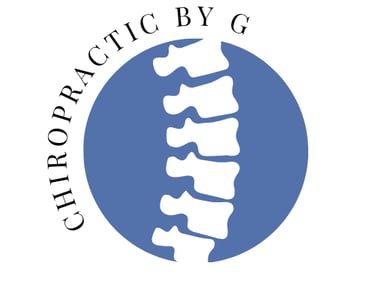Chiropractic Support Anytime
Get essential information and tips while waiting for your chiropractic appointment. Relief is on the way!
Chiropractic Appointment Assistance
Get information and support when appointments with chiropractors are unavailable or delayed.


Experiencing Neck or Back Pain and Can’t Get an Immediate Appointment?
At times, our appointment schedule can be fully booked, and while we aim to help everyone as quickly as possible, we understand that pain doesn’t wait. This page offers you practical advice, guidance, and reassurance while you wait to see us.
Red Flags – When to Seek Immediate Help
Before we begin with home advice, it's important to highlight some “red flag” symptoms that require urgent medical attention:
Back Pain Red Flags
Loss of bowel or bladder control (possible cauda equina syndrome)
Numbness or tingling around the groin or inner thighs (saddle anesthesia)
Sudden, unexplained weight loss
Night pain or pain that doesn't improve with rest
History of cancer or infection
High fever with back pain
Recent trauma (especially in older adults)
Neck Pain Red Flags
Sudden, severe headache with neck stiffness (possible meningitis or vascular event)
Difficulty speaking, swallowing, or seeing
Weakness or numbness in the arms or legs
Unsteady gait or dizziness
History of cancer or known immune-compromised state
Fever with neck pain
If you’re experiencing any of the above, please don’t wait—go to your nearest emergency department or contact your GP immediately.
Understanding Your Neck or Back Pain
Most neck and back pain is mechanical in nature—meaning it’s due to muscles, joints, discs, or ligaments—not something dangerous or permanent.
These common causes of pain can include:
Poor posture (especially desk or phone use)
Muscle strain from sudden movement or awkward lifting
Sleep position issues
Sedentary lifestyle
Stress or tension-related muscle tightness
The good news is that these types of pain typically improve with movement, time, and some gentle home strategies.
While You Wait: What You Can Do Right Now
1. Keep Moving—Gently
Bed rest can make pain worse. Try short, light walks or changing positions frequently throughout the day. Avoid staying in one position (like sitting or lying) for too long.
2. Use Heat or Ice Wisely
Heat can help reduce muscle tightness—apply a heat pack for 15–20 minutes at a time.
Ice is better for inflammation or recent injury—use for up to 10–15 minutes every hour as needed.
3. Try These Simple Movements
Gentle movements can reduce stiffness:
Chin tucks (for neck): Sit tall and gently tuck your chin back without tilting your head.
Pelvic tilts (for back): Lying on your back, tilt your pelvis to flatten your back into the floor.
Shoulder rolls and mid-back stretches help ease upper spine tension.
(If your pain worsens with any of these, stop and rest.)
4. Watch Your Posture
Set up a proper sitting station:
Sit upright with support behind your lower back.
Feet flat on the floor.
Screen at eye level.
Avoid slumping on couches or soft chairs.
5. Stay Calm and Breathe
Pain often feels worse when we’re tense or worried. Deep breathing, mindfulness, and short rest periods can help the nervous system calm down—reducing perceived pain.
A Note on Intense Pain
We often get asked: “Shouldn’t I be seen immediately if my pain is really bad?”
Pain is not always a reliable indicator of damage. Sometimes when pain is at its peak, the body is in a state of high sensitivity. Treatment during this window can be less effective or too uncomfortable—and it’s often better to wait a few days until your system calms slightly for care to have more impact.
You’re Not Alone
Even if your pain is sharp or scary right now, in most cases it’s not dangerous and will improve with time, movement, and support. We're here for you—your appointment is coming soon, and in the meantime, you're taking the right steps by educating yourself and staying proactive.
If your symptoms change or worsen before your appointment, please contact our office—we’ll do our best to advise you further.


Stonehill Medical Centre
Stonehill Crossing
Greenstone, Modderfontein
All rights reserved © chiropractic by g 2024
